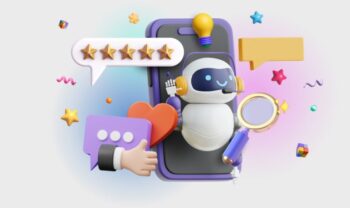When deciding to implement a WhatsApp chatbot, one of the most important choices facing SMEs in Latin America is the type of underlying technology: a flow-based (or rules-based) chatbot or one powered by Artificial Intelligence (AI)? While both seek to automate communication, their capabilities, and therefore their advantages, differ significantly. Understanding these differences is crucial to selecting the solution that not only solves current needs but also scales and adapts to your business's future growth. This article explores the distinct advantages of an AI-powered chatbot, like those offered by Aurora Inbox, over more traditional flow-based models.
Understanding the Fundamental Difference: Flows vs. Intelligence
Before we dive into the advantages, let's briefly recap what defines each type:
- Flow-Based Chatbots: They operate following a predefined script, like a decision tree. The user navigates through menus, buttons, or by entering exact keywords that the bot is programmed to recognize. The conversation is structured and limited to the designed paths.
- Chatbots with Artificial Intelligence (AI): They use technologies such as Natural Language Processing (NLP) and Machine Learning. This allows them to understand the intent behind the user's words (even with variations, errors, or slang), learn from interactions, and offer more dynamic and contextual responses.
Key Advantages of an AI Chatbot for WhatsApp
The incorporation of AI radically transforms the capabilities and effectiveness of a chatbot. Let's look at the most significant benefits for your SMB:
1. Superior Understanding of Natural Language
This is perhaps the most impactful advantage. An AI chatbot can understand user queries formulated in natural language, just as they would speak to a human. It isn't limited to exact keywords. It can interpret synonyms, variations in sentence structure, spelling mistakes, and even, in some cases, the sentiment behind the message. This results in a much smoother and less frustrating user experience, as customers don't have to guess the correct phrase to get an answer.
Example: A user might type, "I want to know where my order is," "track my package," or "information about my shipment." An AI bot can understand that all of these phrases refer to the same intent.
2. More Human and Personalized User Experience
Thanks to natural language understanding and the ability to remember previous interactions (if integrated with a CRM), an AI chatbot can offer more personalized and empathetic conversations. It can greet the customer by name, refer to previous purchases, or tailor its responses to the context of the conversation. This creates a less robotic and more engaging experience, strengthening the customer relationship.
3. Greater Flexibility and Ability to Handle Complex Queries
Flow-based chatbots often "break" or go unresponsive when the user deviates from the script. AI-powered chatbots are much more flexible. They can handle a wider range of topics, understand open-ended questions, and, if they don't have a direct answer, can guide the user more intelligently or know when to escalate the conversation to a human agent. This ability to manage ambiguity and complexity is vital for solving real customer problems.
4. Continuous Learning and Constant Improvement (Machine Learning)
One of the most powerful features of AI is machine learning. An AI chatbot can learn from every interaction. Over time, and with proper training (which platforms like Aurora Inbox facilitate), the bot becomes more accurate, efficient, and capable of handling new situations. This means your investment in the chatbot continues to generate value and improve its performance without the need to constantly redesign rigid workflows.
5. Reduction of the Need for Extensive Manual Maintenance
While all chatbots require some level of maintenance, flow-based chatbots can become very cumbersome to update as the business grows or offerings change. Each new question or variation requires manual modification of the flow. With an AI chatbot, once the knowledge base is well-established and the model is trained, it can handle new variations of existing questions without manual intervention, and the addition of new knowledge is more scalable.
6. Better Lead Qualification and Management
By being able to hold more natural conversations and ask more open-ended questions, an AI chatbot can be more effective at qualifying leads. It can dig deeper into the customer's needs, budget, and urgency, providing the sales team with much richer and more accurate information for follow-up.
7. Ability to Automate More Sophisticated Tasks
The intelligence and flexibility of AI chatbots allow them to integrate more effectively with other business systems (CRM, ERP, etc.) to perform more complex tasks than a simple workflow bot, such as processing personalized requests, offering recommendations based on customer history, or initiating automated workflows.
| Feature | Flow-Based Chatbot | Chatbot with AI (e.g. Aurora Inbox) |
|---|---|---|
| Language Comprehension | Limited to keywords and exact phrases | High (NLP), understands intention and context |
| Flexibility | Rigid, breaks easily out of flow | High, handles variety and ambiguity |
| User Experience | It can be frustrating, robotic | More natural, human and personalized |
| Learning | Doesn't learn, static | Continuously learn and improve (Machine Learning) |
| Maintenance | It can be complex and manual at scale | More scalable, less manual flow redesign |
| Complexity Management | Limited to simple queries | Able to handle more complex queries |
Does this mean that Flow-Based Chatbots are Obsolete?
Not necessarily. For extremely simple and well-defined tasks with a very limited budget, a flow-based chatbot could be a starting point. However, for SMEs in Latin America seeking sustainable growth, an excellent customer experience, and a competitive advantage, the advantages of an AI-powered chatbot are undeniable and often justify the investment in the medium to long term. Many modern platforms, including Aurora Inbox, can even offer a hybrid approach, combining the structure of flows with the intelligence of AI for the best of both worlds.
In Conclusion: AI as a Driver of Superior Communication on WhatsApp
The advantages of an AI chatbot for WhatsApp over a flow-based one are clear and significant. From superior language understanding to continuous learning and a richer user experience, AI empowers chatbots to become true intelligent virtual assistants. For SMEs in Latin America that aspire to deliver exceptional customer service, optimize their operations, and scale efficiently, investing in an AI chatbot solution like Aurora Inbox is a commitment to smarter, more effective, and future-proof communication. The ability to understand, learn, and adapt is what separates a simple automation tool from a valuable strategic business asset.



